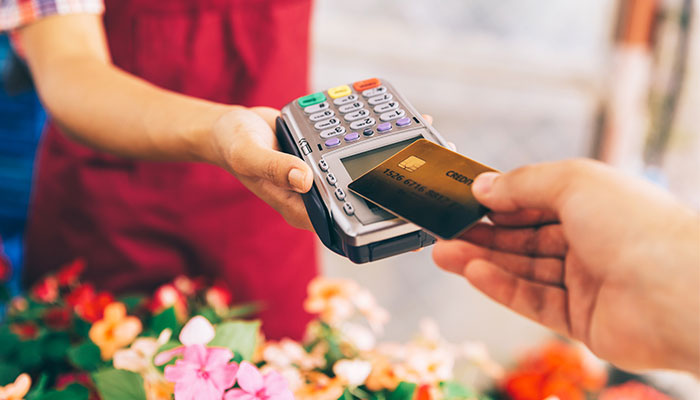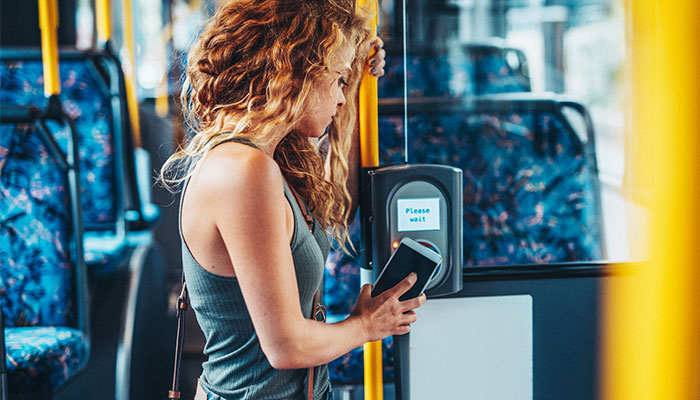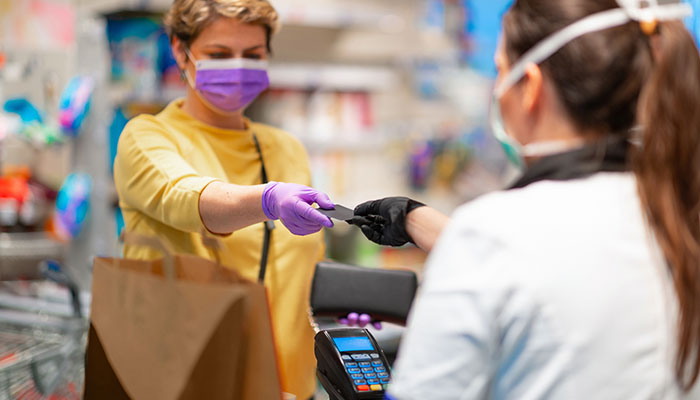Increasingly Australians have been using less cash in favour of credit and debit cards (and now online payment apps) to make their purchases. The COVID-19 outbreak has hastened this move as people fear catching the virus by handling physical money.

Governments have also increased their desire to shift away from physical currency to digital transactions as it is claimed to be cheaper and easier to track when fighting tax evasion and organised crime.
However, the ability to hold and spend physical money gives the Australian public an independent way of storing wealth.
If the Australian government sought to lower interest rates into negative territory for deposit holders in our current cash money society, then Australians could simply withdraw cash from their accounts and store it in their home safes or under their mattresses.
Wealth confiscation
We have already seen several examples of the dangers of wealth confiscation in the move away from cash money to purely digital currencies.
Take frequent flyer miles as an example of a form of digital currency. Airlines and their partner stores are notorious for adjusting the value of those miles so that the customer’s purchasing power is reduced.
Numerous holders of cryptocurrencies such as Bitcoin and Ethereum have seen fortunes stolen in recent years by cyber-attackers and identity thieves.
In times of financial crisis, it would be very easy for politicians or central bankers to simply re-value the holdings of purely digital money to suit their short-term needs, which could result in the confiscation of wealth or significant reduction of purchasing power for Australians.
Similarly, Australians might have seen how the transition to digital payment systems for transport have resulted in more frequent price increases for trips on toll-roads, which typically occur once every three months.
Venezuela’s attempts to introduce a digital currency (backed by its massive oil reserves) have not been effective to resolve its hyperinflation problems and economic woes, with re-valuation of the digital currency occurring at the whim of the government.
Reliability and security issues
Another problem with digital currencies is their reliability. While cash money is resilient, widely distributed and (almost) always accepted in Australia, digital money relies upon electronic networks to function and these are not always reliable.

In July 2019, many Australians were unable to pay for their groceries and essential medicines when Telstra’s network failed. A purely digital currency network would be vulnerable to network failures and cyber-attacks in ways that the cash money system is protected against.
A third problem is the ability to properly secure digital money wallets. Numerous holders of cryptocurrencies such as Bitcoin and Ethereum have seen fortunes stolen in recent years by cyber-attackers and identity thieves. They have had to increase the security on their accounts, with some requiring the approval of multiple individuals before a transaction can occur on their account.
This creates inefficiencies in the hopes of greater security. Many of the claims about the benefits of digital currencies are based upon their supposed increased efficiency.
However, given the current poor state of cyber-security for digital wallets around the world and the track record of thieves stealing millions of dollars from crypto-wallets with just a few keystrokes, it would be risky for a government to require everyone to only use a digital currency at this stage.
The digital divide
A fourth problem which has become apparent in the current pandemic is the digital divide, whereby a proportion of Australian students have been excluded from learning online because they lack access to laptops/tablets and high-speed internet at home. A purely digital currency would tend to exclude the poorest Australians from access due to their inability to afford devices capable of making digital payments.
Existing trials of digital payment systems for indigenous and unemployed Australians have been criticised for numerous technical glitches, increased financial stress and mental harm. Merchant fees charged on such digital payment systems are a burden on the poorest which cash payment systems avoid.
It is quite possible for a non-cash shopper to pick up the virus from touching the self-checkout payment screen or keypad.
The claimed health benefits of digital payment systems are over-stated. While not exposing employees to virus-laden cash is a benefit of digital payment systems, current digital payment systems still often expose customers to risks of virus and bacteria transfer.
A trip to the local supermarket illustrates this: at the self-checkout counters, one after another, every customer is required to press their fingers on the same section of the screen interface to select "payment by card".
With a typical weekly shopping bill exceeding $100, customers using credit cards are then required to press their fingers onto a keypad to enter their four-digit pin-code. Typically, neither the screen interface nor the keypad are sanitized between customer transactions although this is starting to change at major retailers.
Research has shown that the coronavirus can live for days on plastic and glass surfaces. As a consequence, if a COVID-19 positive person has used the self-checkout system in recent times, it is quite possible for a non-cash shopper to pick up the virus from touching the self-checkout payment screen or keypad.

Supermarkets may provide hand sanitiser on the way into the store, but not necessarily on the way out. By touching their hands to their face on the way to the carpark, shoppers risk exposure to the COVID-19 virus and other germs.
Purely digital currencies pose a number of challenges, including risks of wealth confiscation, operational challenges due to reliability and security issues, and may exacerbate inequality by increasing the digital divide. Their claimed health benefits are undermined by existing user interface requirements.
While it is undeniable that cash is less popular than it used to be, many will hope that it continues to be legal tender well into the future.
Dr John Selby is a lecturer with the Macquarie Business School and is a member of the Optus-Macquarie Cyber Security Hub.



